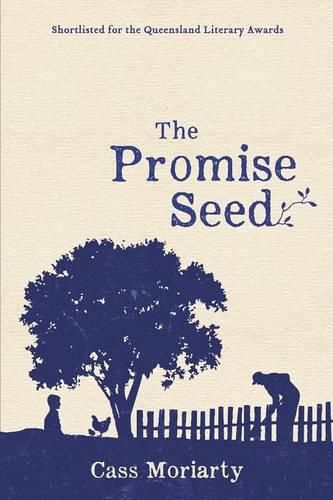The Promise Seed by Cass Moriarty
When his ten-year-old neighbour starts visiting him, an old man begins to reflect on his life. As the two bond tentatively over gardening, chess and chickens, their alternative narratives slowly entwine, unlocking both painful and happy memories, forcing each to confront his demons. A humble coriander seed becomes an unlikely and exotic metaphor for love and renewal in an otherwise socially and culturally bland landscape defined by fast food, game shows and getting wasted. Can the old man give the boy a shred of hope for a normal life?
Set between post-war Queensland, 1960s Melbourne and present-day Brisbane, the threat of violence simmers through this debut novel from the opening page. Moments of tenderness are routinely crushed by moments of brutality that garner force as the novel progresses. Moriarty tackles complex issues around parenting and family life – abandonment, abuse, betrayal and emotional health, of men in particular – with sensitivity and insight. Her portrait of motherhood is especially and uncomfortably confronting. Interestingly, like so many victims of family violence reduced to nameless statistics, Moriarty’s main characters, the old man, the boy and his mother, remain anonymous throughout.
In an era of helicopter parenting and paranoia about inappropriate relationships between older adults and children, The Promise Seed prompts us to consider what has been lost in policing the development of genuine friendships between children and adults outside their family. While the novel tackles the horrific impact of abuse head on, it also offers an alternative picture of positive friendships between young and elderly people, one defined by nurturing potential and sharing of wisdom.
Despite some small missteps, this is a powerful story, simply told, that delivers an emotionally satisfying reading experience. Many readers may, like me, be moved to tears in the closing chapters. Redemption, when it comes, is worth the wait.
Sally Keighery is a freelance reviewer



